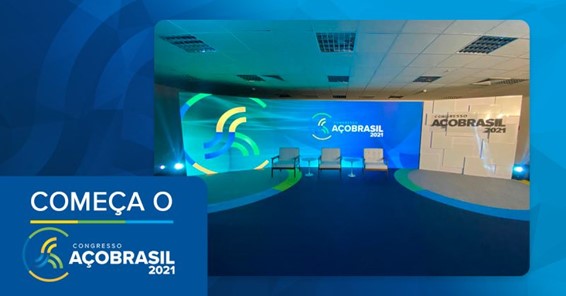On September 29th, the Brazilian Steel Institute brought together authorities, businessmen and numerous experts to discuss the prospects and importance of the sector for the Brazilian economy.
Specifically, the Steel Brasil 2021 Congress panel brought together some of the main executives of the steel industry in Brazil to discuss its main challenges and new opportunities. Marco Polo de Mello Lopes, executive president of Instituto Aço Brasil, was in charge of moderating the debate, which brought together executives such as Sergio Leite, director of Instituto Aço Brasil and CEO of Usiminas; Gustavo Werneck, director of Instituto Aço Brasil and CEO and CEO of Gerdau; Frederico Ayres Lima, director of Instituto Aço Brasil and CEO of Aperam South America; and Marcelo Chara, director of Instituto Aço Brasil and CEO of Ternium.
Polo began the debate by stressing that “2020 would be the year of recovery. Then came the pandemic, the significant social isolation and with it a serious demand crisis”. Sergio Leite was the first to comment in the round of debate, pointing out that the steel sector did suffer the strong demand crisis, but stressed that the market is already fully supplied and does not present any exceptionality.
On his part, Werneck emphasized that the Brazilian steel industry is prepared, and with high capacity, to meet the demands of the present and those that will come in the future. Ayres, for his part, made a more macro analysis and reinforced that, in practice, GDP and economic development go hand in hand. “Brazil’s task is to reduce competitive asymmetries. And in this sense, it is necessary to improve competitiveness in general,” he reiterated.
The future of steel consumption worldwide was also discussed during the debate. “Metal construction is already a reality. And it is a path that needs to be analyzed. When we look at South Korea, for example, metal construction is already a reality. It is a great case. And this should be encouraged in Brazil. We have to increase the debate on this topic in the country,” Werneck added.









